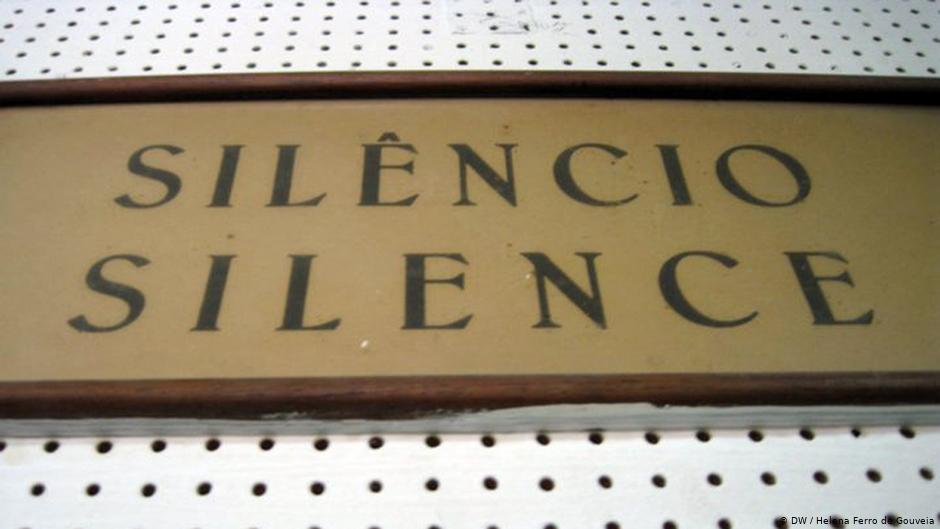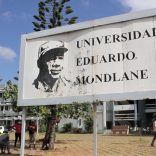Mozambique: Health system faces shortage of BCG vaccine
Mozambique: ‘Carta’ journalist released after “humiliating” detention – DW

Image: DW
- Omardine Omar of ‘Carta de Moçambique’, tells DW about the “illegal” and violent detention he was subjected to while carrying out investigative work. The journalist, released on Sunday, is accused of civil disobedience. The trial is today.
Journalist Omardine Omar, from the online newspaper ‘Carta de Moçambique’, was released on Sunday (28.06), after being detained for three days, first at the seventh PRM police station in Maputo and later in the central jail in Maputo. During this period, he was held incommunicado, without being presented in court or allowed a lawyer.
Omar was detained in the Avenida Emília Dausse, in Maputo’s central Alto Maé neighbourhood, where he was carrying out journalistic work. The journalist told DW Africa that he was beaten and detained without justification.
Omar will go to court today to answer charges of civil disobedience, allegedly for violating the state of emergency. The journalist says he will probably sue the police for a detention he calls “illegal”, and demand reparations for moral and material damages.
This situation is not unique, with journalists in Mozambique presents under considerable pressure. Vilankulo Televisão (VTV) journalists Paulino Vilankulo and Yassin Vilankulo were also arrested this month, while reporting a road accident in the same district, and had possessions confiscated.
Other journalists from ‘Canal de Moçambqiue’ face charges after reporting on an agreement between the state and multinationals to protect workers from attacks in Cabo Delgado.

DW Africa: When did the arrest take place? What were you doing on the spot?
Omardine Omar (OO): I left my house at 11:00 a.m. on June 25th to do a job in the Estrela market area in the city of Maputo, where reforms carried out by the authorities had removed vendors from the place. Apparently the stalls of informal sellers have been removed, but this is just political talk because in fact the stalls have gone, but the people have remained.
A week ago I received a tip-off about a document submitted to the police command of the Maputo Municipal Council by a group of citizens exposing a set of irregularities which they had suffered, including intimidation by the police, threats, corruption, extortion … As an investigative journalist, I have to check the facts closely, to assess the reality of what was happening, collect the best images and concrete evidence and so on.
So, that day I went there to meeting local sources who live day-to-day with these atrocities practiced by the police. At 3:00 p.m., I went back to start doing investigative work. When we got there, we were four people in the car, my field assistant, my brother and a local resident. The house we were going to belongs to this local resident. When we arrived at the garage door, rapid intervention unit [FIR] police agents appeared. One stops in front of the vehicle and one in the back.
I asked the agents why they were stopping the car, since we were not on the public road, but entering a private residence. That was precisely one of the aspects reported in the letter [of denunciation], so I asked that my field assistant to turn on the camera and introduced myself: “I am a journalist and I am here to do a job and what you are doing is violation”. I was trying to find out on what basis, under which article of the presidential state of emergency decree the police officers were stopping vehicles during the day and things like that. This question created a set of problems that day.
DW Africa: How did the arrest take place? What did they accuse you of?
OO: The police surrounded my vehicle. Three policemen appeared and started to assault me and my field assistant. My cousin tried to find out [what was happening] and was also assaulted. We were treated like outlaws and criminals, despite my insistence that I didn’t know why they were doing that to me. I was taken to the Seventh Police Station where I experienced one of the saddest moments of my life. We were humiliated and thrown into a dark, stinking cell full of mosquitoes, exposed to all kinds of risks. I asked the police to talk to my lawyer and my family about what was happening, and they simply said that I had no right to do that, that it was not worth it because they would not allow me to make any calls. Then, coincidentally, they asked me to unlock my phone so they could delete the image and I simply refused. Then they accused me of drinking on the street and photographing the police, which constitutes a gross lie and an attack on my image and the work I have been doing.
I think that this is a mechanism that is being used to intimidate me and inhibit me from continuing to do the work that I have been doing, such as informing society about issues such as Cabo Delgado, issues of human rights violations and many other nuances that support the “pearl of the Indian Ocean”. This is a case which confirms once again that there is no rule of law in Mozambique, that anything goes. And that [we] journalists, with thinking critical of the current organisation and governmental entities are not seen as Mozambicans of good standing. We are seen as apostles of disgrace, as anti-patriotic citizens. It is a regrettable situation.
Tomorrow (Tuesday, 30.06) I will be presented to a judge. I will have a summary trial and I will have to be prepared for anything, since I do not understand why I am being subjected to this situation. But journalism is a passion, journalism is something that keeps me going. Work in search of the truth, to inform, to defend the repressed and minorities. This war that is being waged against me strengthens my struggle and my desire to always do good.
DW Africa: What will happen on Tuesday [30.06] in court? Which formal accusations will you be the target of and by whom?
OO: Tomorrow I will be tried in case 342/2020/d by the third section of the Ka Mpfumo court in the city of Maputo, accused of civil disobedience. In fact, it will be a summary trial with the outline of possible damages or the payment of fines for allegedly violating the state of emergency, which is not true. I am living this moment in a very dark way. I was illegally held in two prisons over less than three days. I was [imprisoned] in one of the largest penitentiaries in the country, the [Maputo] central jail, illegally. They tried to get me out of jail in the middle of the night but for security reasons, I refused. And tomorrow [Tuesday] I don’t know what awaits me, whether I will be condemned or acquitted. And I hope that it [the court’s decision] will not upset the political elites behind this meaningless process even more.
The prosecution in principle will be brought by the Public Prosecutor’s Office, representing the state, since the police officers who arrested me are state agents. But with a non-state action. It seems more like a “gang” united to extort and mistreat and make people [feel] insignificant. There are a number of things that I could mention about the behaviour that I observed during my detention and for the behaviour that was verified in the allegations that they make against me. And for the forged evidence that can be used in this case, which for many seems to be a commonplace, but in fact there are unclear objectives, which to me are clear, which is to intimidate me and, perhaps, reduce the number of reporters committed to truth and freedom of expression, with the exercise of democracy. I personally feel very concerned at the moment, as a citizen who may be on death lists, because that is how it is done in Mozambique.
DW Africa: Why were you in two different prisons?
OO: After [being detained at the 7th Police Station] I was taken to Ka Mpfumo district court, I stayed there almost all day without being heard. It was not until late afternoon that a court officer appeared and handed a document to the policeman who in an arrogant and unprofessional way, went on psychologically torturing us. We were not told that we were going to be transferred on Friday evening to the central jail in Maputo. Allegedly, the judge had not yet seen the process and, coincidentally, one of the things that violated this whole process – and that in our opinion should have collapsed from there – was that our transfer to the central jail of Maputo was approved by a court bailiff and not by a judge.
This led the Public Prosecutor to intervene in the process, and on Saturday (27.06), at just after7:00 p.m., I was summoned by agents on duty in the central jail in Maputo who asked how we got there, who brought us, how it was legal, and so on. I responded and was told we were free, which intrigued everyone. But it was due to public pressure in various quarters, and that I am very grateful for. I hope to continue to enjoy this support in full because this seems to be the beginning of a battle which could end in tragedy if there is no protection, particularly of journalists carrying out investigative work rigorously. I was released at 10:00 a.m. on Sunday, June 28.
DW Africa: Through the abuses you described, do you intend to file a complaint against the police who arrested you?
OO: It all depends on the decision that the panel of judges takes. But that is a possibility to consider in the coming days. Because, in fact, it shows that we are in an authoritarian state, in a state that aims to limit active rights. So, it is likely that I will prosecute all the police [agents] involved in my illegal detention and demand compensation for moral and material damages to which I and my companions were exposed to.














Leave a Reply
Be the First to Comment!
You must be logged in to post a comment.
You must be logged in to post a comment.